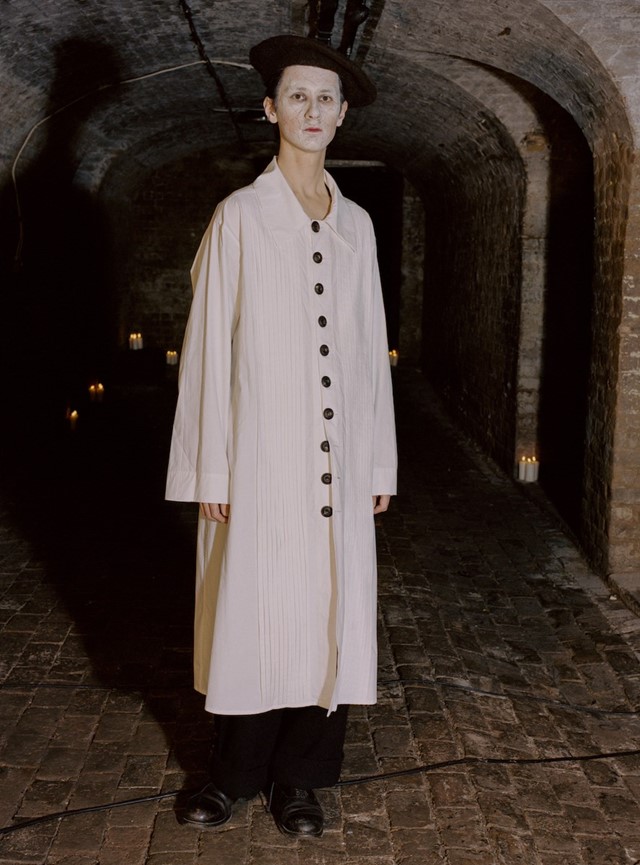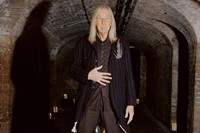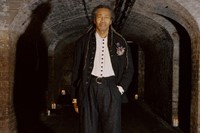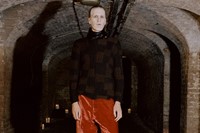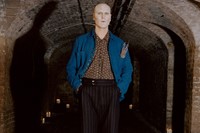After his Collection XII show at the crypt underneath St Pancras New Church, British menswear designer John Alexander Skelton talks toy shops, eccentricity and music
For his latest show – Collection XII, as it is described numerically, rather than seasonally – John Alexander Skelton was inspired by Pollock’s Toy Museum, a site of wonder on a quiet corner in London’s Fitzrovia. Even when the toy museum is open, it never really looks it – which only adds to the appeal.
“I had a studio for a couple of years on Poland Street in Soho, and during the first lockdown at lunchtime I would walk to keep myself sane,” Skelton tells AnOther. “I kept going past because I was going somewhere nearby for lunch. All the time I’d be thinking that as soon as things opened up, I was going to go and have a look inside because it looked really fascinating. Then a friend of mine, Simon Costin, who has the Museum of Witchcraft and Magic in Cornwall, had been and done something with Jack Fawdry Tatham, who is a printmaker and the custodian of the Toy Museum which he runs with his partner Emily.”
Skelton keeps a couple of shirts each time in his collection for an artist to collaborate on. Jack, the grandson of Marguerite Fawdry, a BBC journalist who established the museum as it is today, created artwork to be hand screen printed.
“Everything fell into place,” says Skelton, who hails from York and has an MA from Central Saint Martins. “I wanted to create an imagined wardrobe for the original owner, John Kilby Green, who was a multifaceted character: an artist, shopkeeper and a printer all at the same time. Printing toy theatres from etched copper plates was an artisan job. I thought about what he would do day-to-day and how he would dress himself, with the potential eccentricities this character could have had doing something that is quite niche.”
It’s not surprising that the nature of the artisan would speak to Skelton – it is woven in his ethos. Encounter the clothes in shops from Los Angeles to Tokyo, and you’ll find the designer’s hand present, often chronicling processes such as dyeing on Instagram. The nomenclature of his collections – ‘Collection plus Roman numeral’ – is clever as it reminds us of Skelton’s contribution to an overall body of work, and is the antithesis of fleeting seasonality.
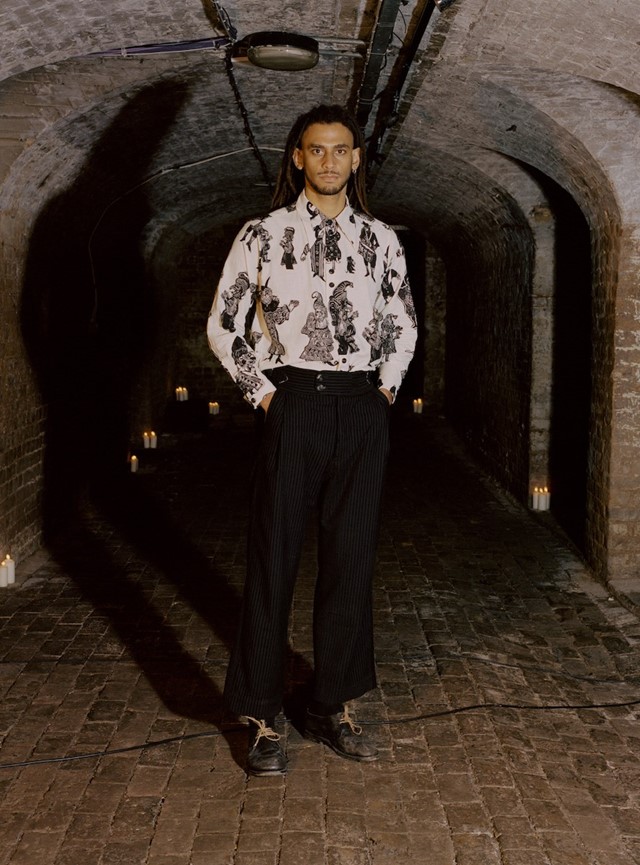
But that doesn’t mean his clothes don’t disappear into the ether. Want to quickly check back that presentation from 2017? There is no aide-memoire on his website, which isn’t really a website. You’ll have to find other sources.
“I always wear a lot of the samples,” the designer tells me. “It’s really odd that anyone wouldn’t wear much of the clothes they create, and I can’t fathom why. It’s like a chef existing on food that was cooked completely differently to what they were making. I get a buzz off it and it helps me develop my patterns: you find the technicalities, what works.”
The show – and the images you’re seeing exclusively here – took place on January 8 at the crypt in St Pancras New Church, calling upon a returning cast that included Michael Costiff.
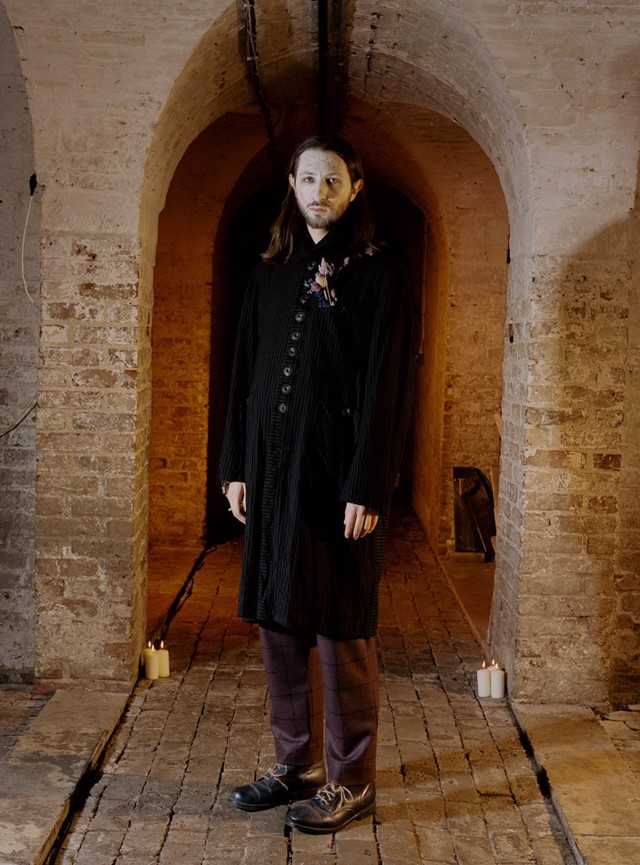
“I really like using the same people, and it feels like a point now where I have this cast of characters who are also friends and the work really benefits from it,” he reasons. “There were maybe four new people in this show.”
Moving away from more performance-based presentations of the past, there was a challenge to himself in setting this show to music. In came a 4AD moment.
“There’s a collective from the 80s I like called This Mortal Coil,” he voices. “They have a song called The Lacemaker, which is quite a dramatic, mainly acoustic piece using a symphony of cellos. I know Anna, their harpist, through friends and my brother [Ryan Skelton] and thought it could be translated really well in making a half-hour piece of music … It really helped the mood of the show, the tension between this quite jolly-sounding high-pitched harp, played really slowly.”
